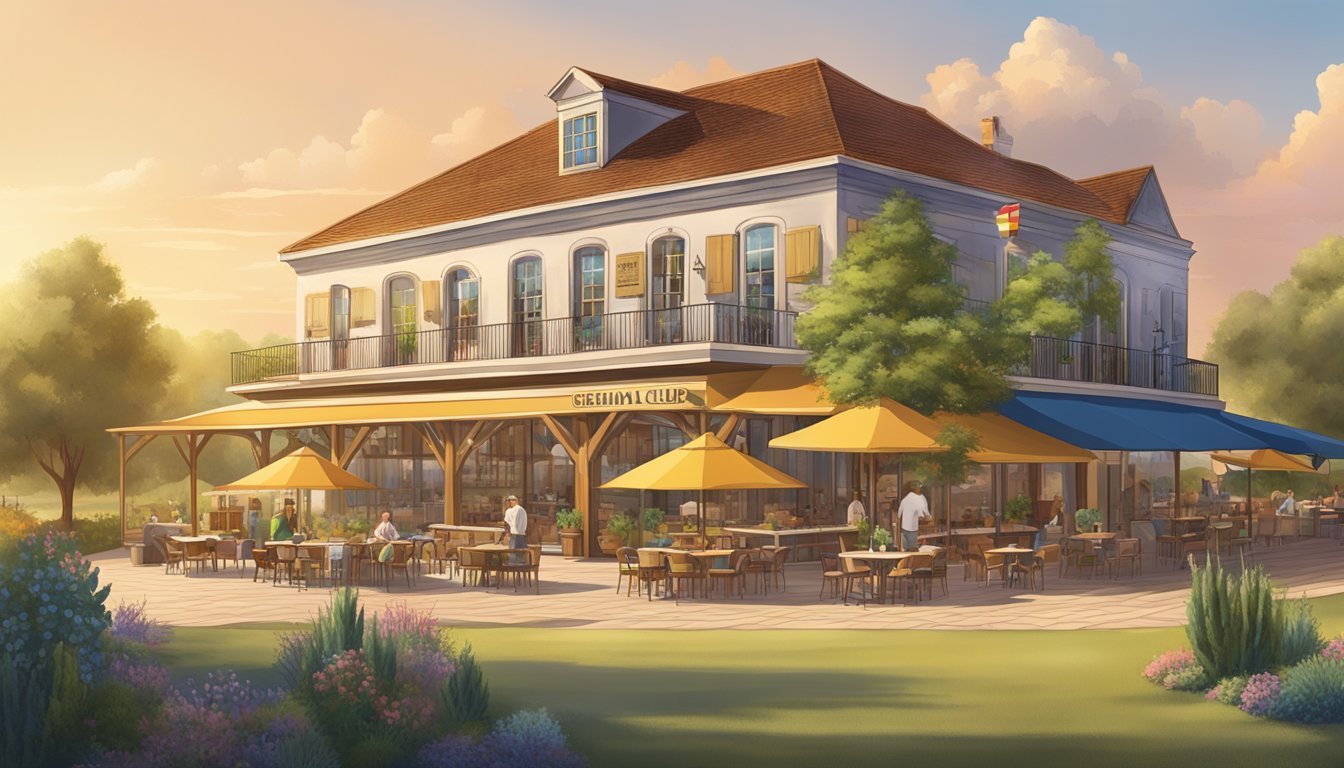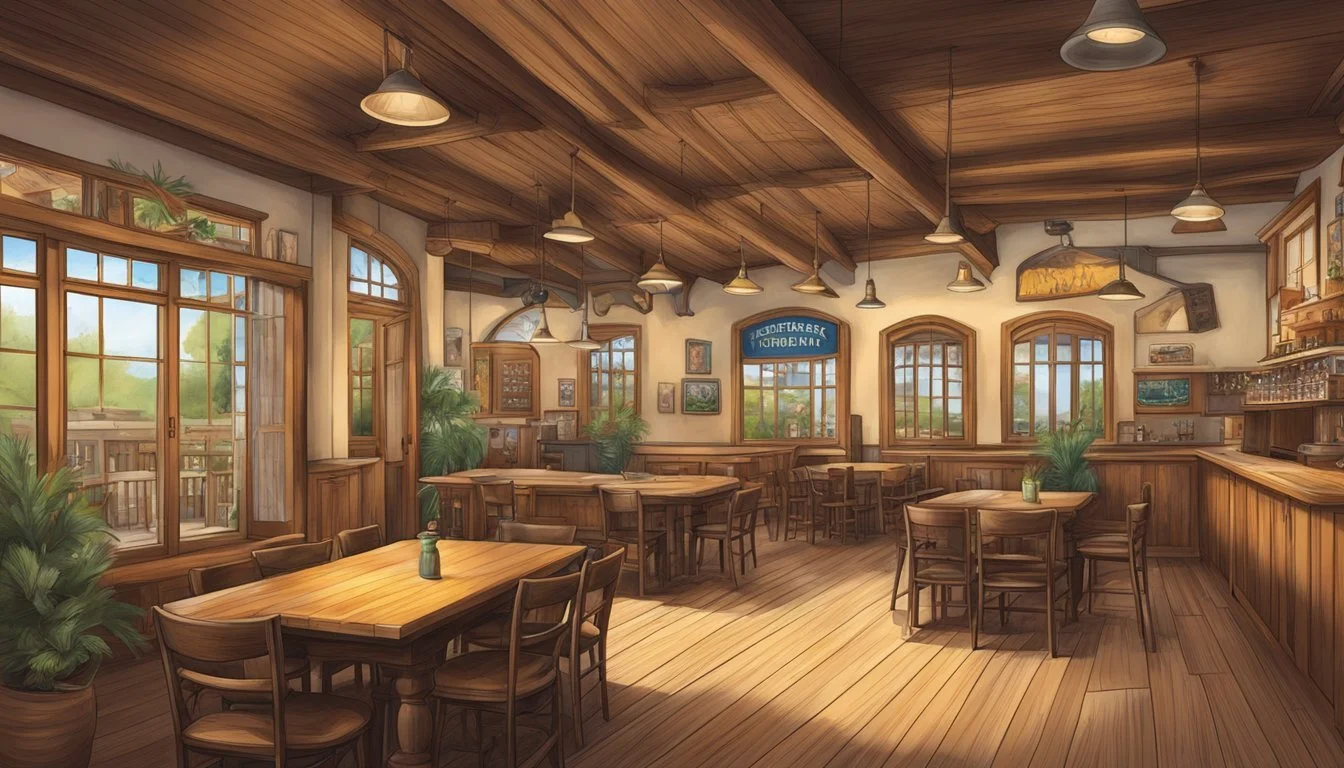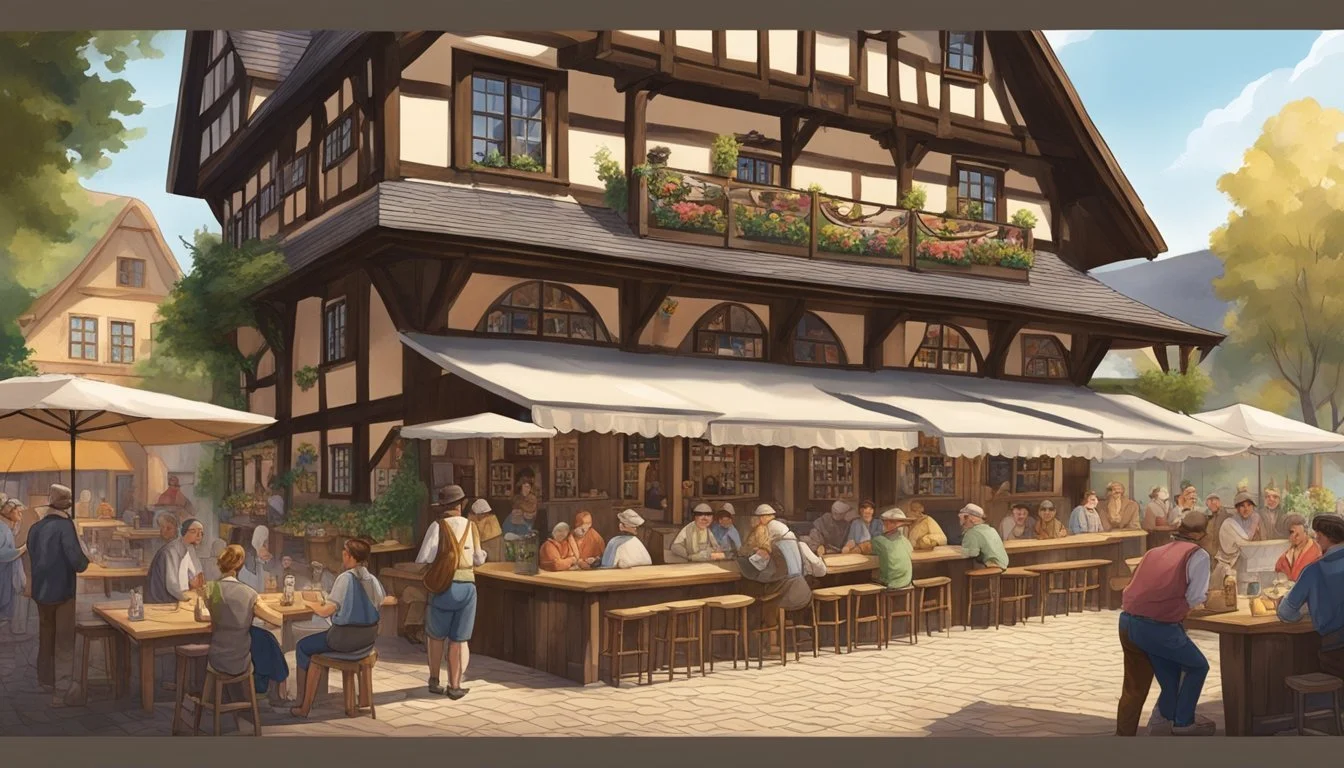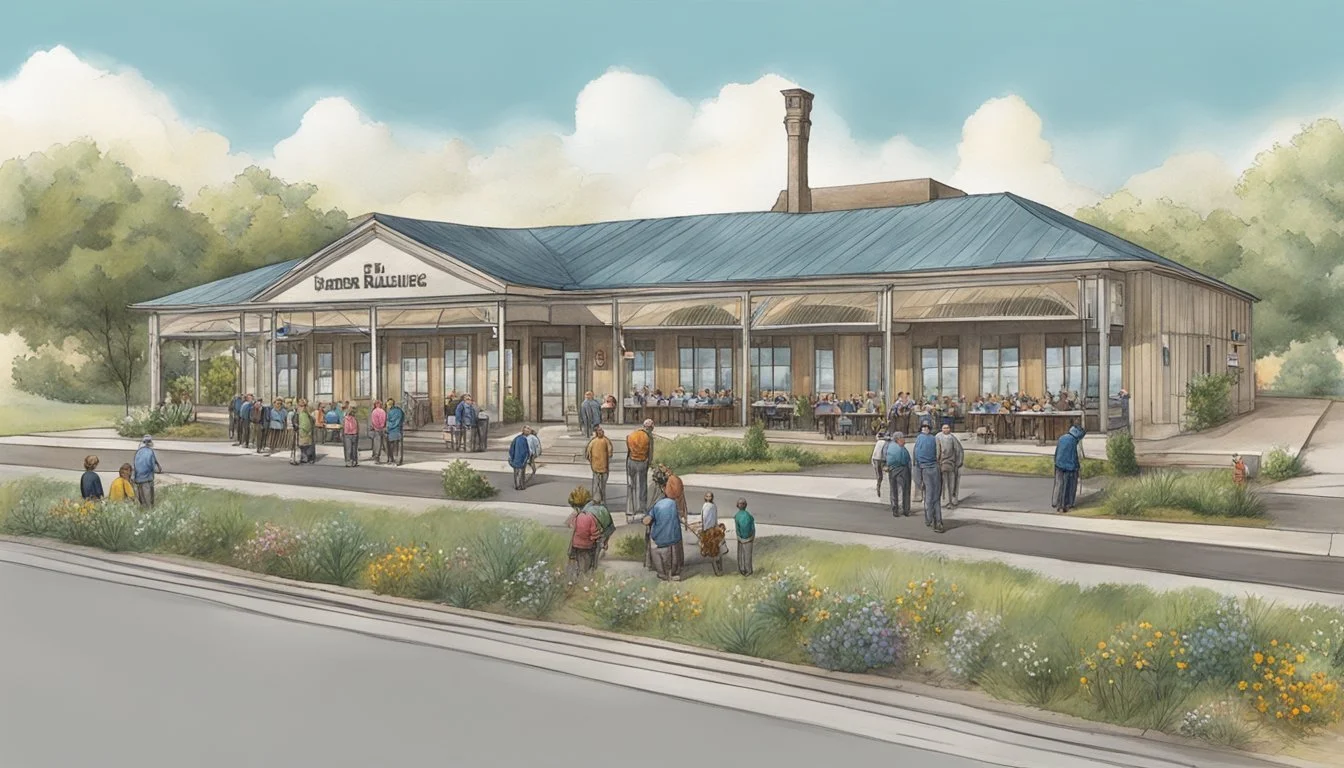The History of German Social Clubs in Texas
Cultural Heritage and Community Bonds
German Texans have played a significant role in shaping the cultural landscape of Texas since the early 19th century. As immigrants from Germany sought new opportunities in Stephen F. Austin's colony, they brought with them traditions and a strong sense of community. To preserve their heritage and provide a communal space for socialization, Germans in Texas established a variety of social clubs. These institutions became focal points for maintaining German language, customs, and music, serving as essential hubs for immigrant communities to connect and support each other in their new environment.
The Texas Wendish Heritage Museum symbolizes the effort to preserve the unique identity of the Wends, a Slavic group from Lusatia in eastern Germany. Meanwhile, in places like Galveston, social clubs such as the Garten Verein were formed by German businessmen, creating exclusive sanctuaries for German speakers. These clubs were not just social corners but also platforms to exercise cultural practices, from singing societies to festive celebrations like Oktoberfest, which mirrored their native festivities and strengthened the German presence in the local mosaic of Texas culture.
As the state evolved, these German social clubs adapted, surviving through significant historical events and societal changes. They helped to foster a sense of belonging among their members, amidst the broader American tapestry. Despite challenges and periods of anti-German sentiment, especially during the World Wars, these clubs preserved aspects of their heritage. Today, they stand testament to the endurance of cultural identity and continue to contribute to the diverse and rich history of Texas.
Origins of German Immigration to Texas
The earliest German immigrants to Texas sought land and freedom, contributing significantly to the state's cultural and geographical landscape.
Pioneering German Settlers
The initial wave of German immigration to Texas began in the 1830s, led by figures like Johann Friedrich Ernst. Ernst, often cited as the "father of German immigration to Texas," arrived in 1831. He received a land grant, igniting interest among other Germans in the fruitful opportunities Texas promised.
German Texan Communities Formation
By 1842, the Adelsverein, formally known as the Society for the Protection of German Immigrants in Texas, facilitated organized settlements. Towns like New Braunfels and Fredericksburg became cultural hubs for these immigrants. They established thriving communities, intertwining German traditions with the Texan lifestyle.
The Significance of Land and Settlement
The appeal of abundant land was a powerful draw for German immigrants. They often opted for challenging, yet fertile areas like the Texas Hill Country. Texas offered prospects for economic freedom and the space to preserve cultural identity, enticing thousands to the region.
Prominent Figures in Early German Texan History
In addition to Ernst, other individuals such as Prince Carl of Solms-Braunfels, representing the Adelsverein, played crucial roles. They negotiated agreements, acquisition of land, and planned settlements, shaping the early German Texan communities.
Cultural Integration and Influence
The history of German social clubs in Texas showcases a unique interweaving of German culture with Texan life, influencing education, religious practices, traditions, and industry within the state.
German Language and Education
German immigrants established various schools to maintain their language and culture. They introduced bilingual education, with German used alongside English, ensuring that young Texans of German descent preserved their linguistic heritage. A notable legacy is the influence of the German language in local names and academic institutions.
German Texan Churches and Religion
Churches served as a crucial point for cultural integration for the German-Texan community. They not only provided spiritual guidance but also became centers for social gathering and cultural continuity. Lutheran and Catholic churches, in particular, played significant roles in converging German religious practices with Texan community life.
Fusion of German and Texan Traditions
Social clubs and festivals became avenues where German customs blended with local traditions. Events like Oktoberfest have become synonymous with such cultural fusion, celebrating with German music, food, and beer, while simultaneously embracing Texan hospitality and community spirit.
German Contributions to Texas Industry
Germans in Texas imparted a substantial impact on local industries such as agriculture, brewing, and engineering. Their skills and work ethic contributed notably to the economic development of the state, leaving a legacy that continues to be evident in the industry practices and innovations of today.
Social and Recreational Life
German social clubs have played a pivotal role in the community life of Texans of German descent. These clubs provided an essential platform for social interaction, cultural preservation, and recreational activities.
German Social Clubs in Texas
German clubs, known as Turnvereins, were central to community building in Texas. In towns like Boerne, these clubs thrived, encompassing over 600 members in communities with just a few thousand residents. They offered a range of social and recreational services, from festive gatherings to more formal events, serving as a hub for German-Americans to connect and preserve their heritage.
Musical Influence and German Bands
Music has always been an integral aspect of German culture. In Texas, Turnvereins fostered the love for music, especially classical and German folk genres, including polka. German bands were a common feature at social events, contributing to a vibrant musical scene that influenced even the wider Texan music culture.
Traditions of Food and Beer
Food and drink, especially food and beer, were staples at German social gatherings. Traditional German dishes and a variety of beers were not only served during festivals but also featured at regular club meetings, reinforcing culinary traditions and offering a taste of home.
Notable dishes include:
Bratwurst
Pretzels
Sports and Physical Training
Sports and physical training were also prominent, with many clubs having facilities for bowling, gymnastics, and other sports. These activities encouraged a spirit of camaraderie and physical well-being, reflecting the German emphasis on Turnen — an ideology that combined physical education with moral and civic development.
Political and Civic Engagement
German immigrants in Texas played a significant role in shaping the political and civic landscape of the state. They brought with them a strong sense of community engagement and actively participated in politics, promoted civil liberties, and utilized newspapers as a platform for civil discourse.
German Texans in Politics and Legislature
German-born Texans were noteworthy participants in state politics and the legislative process. They served in various governmental roles, contributing to the development and implementation of state policies. Eduard Degener, for example, served as a US Congressman during Reconstruction. Their presence in the legislature underscored the integration of German immigrants into the Texan political arena.
Civil Rights and the Concept of Freedom
The German community held a profound commitment to individual freedoms and civil rights. This was exemplified in events like the Texas State Convention of Germans in 1854, where organizations like Der Freie Verein promoted intellectual liberty. They embraced principles that emphasized the importance of protecting individual rights and opposing any form of oppression.
German Newspapers and Civil War
During the Civil War era, German-language newspapers in Texas were instrumental in influencing public opinion and disseminating information about the war and civil issues. These publications, such as those produced by A. Siemering, provided a critical platform for Germans in Texas to express their views, particularly in their advocacy for the Union cause and their opposition to slavery.
Preservation of German Heritage
In Texas, the preservation of German heritage is evident through a variety of avenues, including year-round events, educational programs, and dedicated preservation efforts.
German Texan Events and Festivals
Texas hosts numerous events and festivals throughout the year that celebrate German heritage. These gatherings often feature traditional German music, dance, food, and customs, allowing attendees to experience cultural traditions. For instance, Oktoberfest in Fredericksburg is a notable annual celebration drawing crowds that appreciate German beer, cuisine, and lively polka music.
Educational Programs and University Engagement
Several institutions, including the University of Texas, are involved in programs that promote German culture and language. Courses and extracurricular activities focused on German studies help preserve the language and traditions. Moreover, these programs often collaborate with heritage societies to provide comprehensive educational experiences.
Heritage Preservation Efforts
Efforts to preserve German architecture and historic sites are paramount in maintaining the cultural landscape of Texas. Organizations such as the German-Texan Heritage Society work to conserve landmarks like the German Free School in Austin. They also support heritage museums like the Texas Wendish Heritage Museum, which documents the history of the Texas Wends, a Slavic group from Eastern Germany who settled in Texas.
Challenges and Resilience Over Time
German social clubs in Texas have faced considerable challenges throughout their history, yet their resilience has played a crucial role in preserving their cultural legacy. They navigated complex social changes and global conflicts, which shaped their identity within the Texan social fabric.
World Wars Impact on German Texan Identity
During World War I, German-Texans experienced a stark shift in perception. As the United States was at war with Germany, German culture and identity in Texas faced scrutiny and, at times, hostility. Many German social clubs and organizations were pressured to demonstrate their American patriotism, which led to a reduction in the exhibition of their German heritage. Their lineage and roots—once celebrated—temporarily became a source of suspicion.
German-Texan social clubs had to carefully balance their cultural expressions with the broader sentiment of the American public. The legacy of their cultural organizations was at stake, but many clubs preserved their identity by emphasizing American loyalty while maintaining German traditions discreetly.
Navigating Shifts in Social and Cultural Dynamics
In the years following the World Wars, German-Texans witnessed a dynamic shift as they strived for equality and recognition within a diversifying American society. Social clubs played an important role in this transition, fostering a philosophy that blended German customs with Texan values.
These organizations contributed to the community's social cohesion and embraced the evolving cultural landscape. By holding onto key traditions—language, music, and festivals—they reinforced a sense of community among their members. This resilience helped to ensure that the German-Texan cultural identity was preserved while simultaneously adapting to the times.
German-Texan social clubs continue to celebrate their heritage, reflecting the adaptability and tenacity that have marked their long-standing presence in Texas.







